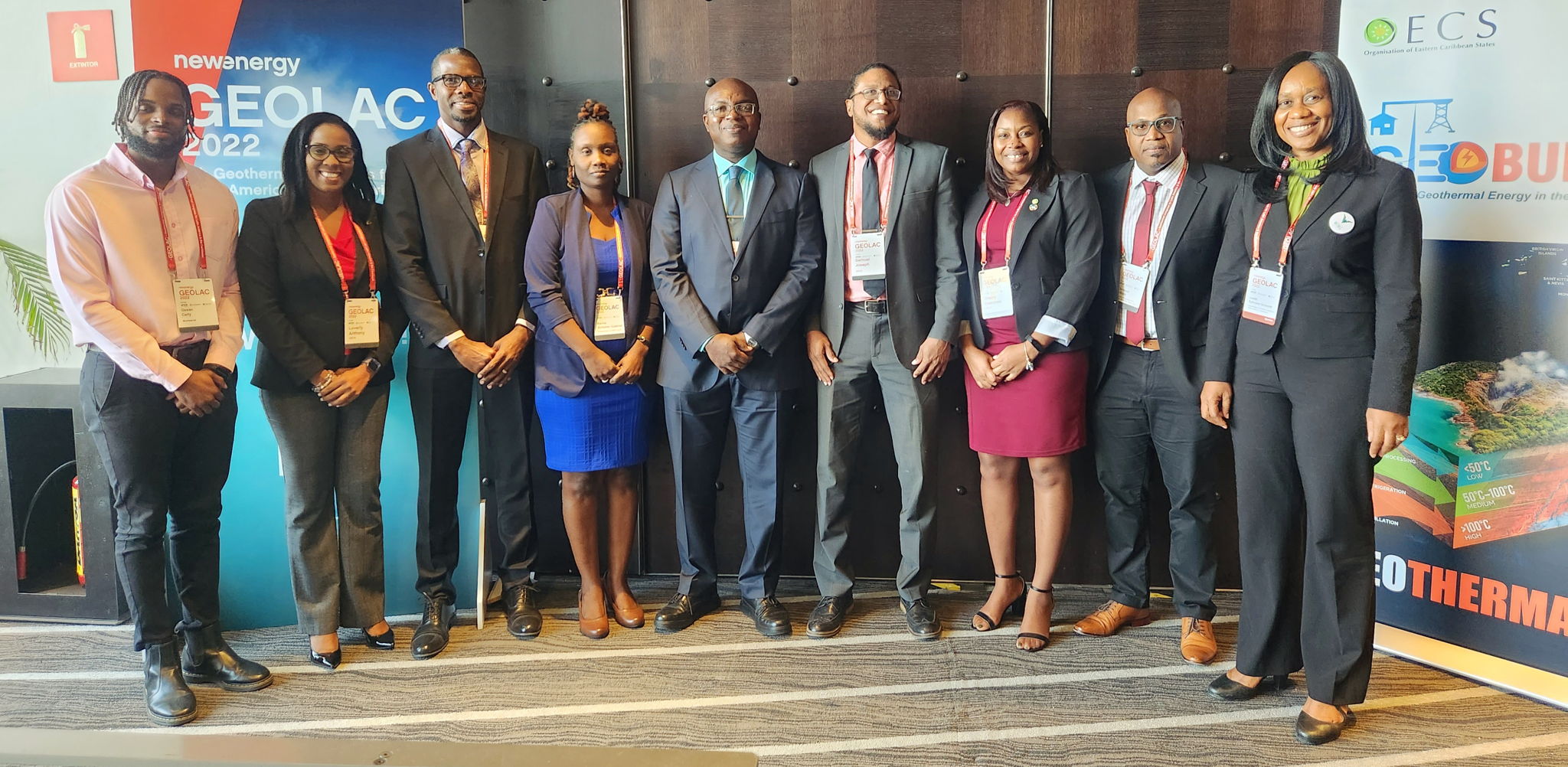OECS GEOBUILD Features at 9th GEOLAC
OECS Media Release
The climate change crisis looming in our world along with geopolitical pressures has brought to the fore the urgent need to adopt clean energy solutions in the Caribbean Region. The Organisation of Eastern Caribbean States Commission in partnership with the Caribbean Development Bank is currently embarking on a programme to explore geothermal energy as a clean-energy option for five OECS Member States.
An OECS delegation participated in the 9th Geothermal Congress for Latin America and the Caribbean (GEOLAC) in Mexico City from November 7-9, 2022, during which a bold new initiative aimed at accelerating geothermal energy development in five OECS Member States was launched. The GEOBUILD Programme – short for the OECS Geothermal Energy: Capacity Building for Utilization, Investment and Local Development Programme – is a three-year initiative that will be implemented by the OECS Commission funded through a technical grant from the Caribbean Development Bank( CDB) with resources from the Inter-American Development Bank IDB and the European Union Caribean Investment Fund (EU-CIF).
GEOBUILD is specifically designed to address some critical gaps and needs of geothermal energy in the OECS with the aim of increasing its contribution to the region’s energy mix. To date, Guadeloupe is the only OECS Member State with a geothermal power plant of 15 megawatts (MW). However, successful development of geothermal resources in the rest of the region could significantly increase the production of clean energy, reduce dependence on imported fossil fuels, and support the transition to sustainable energy. Geothermal energy has the potential to support other sectors and industries and bring much needed relief from the impacts of volatile and escalating energy prices during energy crises, such as are being experienced now.
Key areas to be addressed include the scientific and engineering aspects of providing geothermal energy and ensuring that its uses are fully explored and utilized. The programme will also enhance the legal and transactional aspects of geothermal energy development in the region, ensure that business models are developed, and agreements negotiated to provide clear and advantageous benefits to its people. Key objectives include demystifying and providing accurate information on the status of geothermal energy in the region and the opportunities to be derived. The GEOBUILD is also expected to support efforts of regional integration by further facilitating greater coordination, sharing and collaboration of geothermal energy in the OECS.
The Programme supports five OECS Member States, namely, The Commonwealth of Dominica, Grenada, Saint Kitts and Nevis, Saint Lucia, and St. Vincent and the Grenadines. It aims to facilitate a more conducive environment for geothermal energy development by strengthening the OECS technical capacity for geothermal exploration and the design and management of geothermal projects.
GEOLAC brought together key geothermal stakeholders in Latin America and the Caribbean to explore opportunities for increased geothermal output, tackle obstacles to development, promote the exchange of knowledge and expertise, and facilitate vital new meetings and relationships. Co-hosted by New Energy Events, the Inter-American Development Bank, The World Bank, and ESMAP, GEOLAC is the only gathering of the regional geothermal market. Launched in 2012, the event brings together public, private and multilateral stakeholders for three days of intensive networking and interaction on the prospects for investment in geothermal region-wide.







Loverly Anthony
OECS Communications Unit
